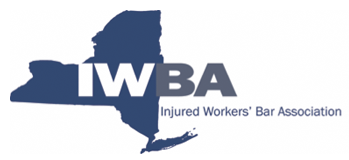By Clifford Tucker
The Fair Labor Standards Act (FLSA) and New York Labor Law (NYLL) are important labor laws that establish the minimum standards for wages, working hours, overtime pay, and other labor practices. The FLSA is a federal law that applies throughout the United States and the NYLL is a state law that applies in the state of New York. Although the two laws share some similarities, there are several practical differences between them. Counsel can help employees recover damages and help employers avoid litigation by understanding the requirements.
The identification of the employers to be named as defendants is a critical first step for plaintiffs. The FLSA and NYLL define terms like “employee” and “employer” broadly, covering some parties who might not qualify as such under traditional agency law principles. Nationwide Mut. Ins. Co. v. Darden, 503 U.S. 318, 326 (1992). “Employer” is defined similarly in the FLSA and NYLL, and “employee” is defined nearly identically. Hart v. Rick’s Cabaret Int’l, Inc., 967 F. Supp. 2d 901, 922 (S.D.N.Y. 2013) (citing 29 U.S.C. § 203; N.Y. Lab. Law § 190). To identify “employers,” courts are directed to the “economic reality” rather than “technical concepts” and usually consider four nonexclusive and overlapping factors: (1) the power to hire and fire employees, (2) supervision and control over employee work schedules or conditions of employment, (3) determination of the rate and method of payment, and (4) maintenance of employment records. Irizarry v. Catsimatidis, 722 F.3d 99, 104 (2d Cir. 2013). Employer-defendants can include owners, principals, and managers in their individual capacity, and an emplyee may simultaneously have multiple “employers” for the purposes of the FLSA and NYLL. Martin v. Sprint United Mgmt. Co., 273 F. Supp. 3d 404, 421 (S.D.N.Y. 2017).
Jurisdiction is another important consideration wage and hour cases. The FLSA covers employees who are either “engaged in commerce” (individual coverage) or “employed in an enterprise engaged in commerce” (enterprise coverage). 29 U.S.C. § 206; 29 U.S.C. § 207. For individual coverage, a substantial part of the employee’s work must relate to interstate commerce, such as communicating regularly with out-of-state customers, using the telephone and mail to engage in interstate communication, or regularly traveling across state lines while working. 29 C.F.R. § 779.103; Bowrin v. Cath. Guardian Soc., 417 F. Supp. 2d 449 (S.D.N.Y. 2006). For enterprise coverage, the employer must have a gross volume of sales or business done of at least $500,000 and engage in interstate commerce. 29 U.S.C. § 203. Virtually every enterprise in the nation that does the required dollar volume of business is covered by the FLSA. Archie v. Grand Cent. P’ship, Inc., 997 F. Supp. 504, 530 (S.D.N.Y. 1998). If an employee is covered by the FLSA, they may bring both federal and state claims in one federal action. 28 U.S.C. § 1331; 28 U.S.C. § 1367.
